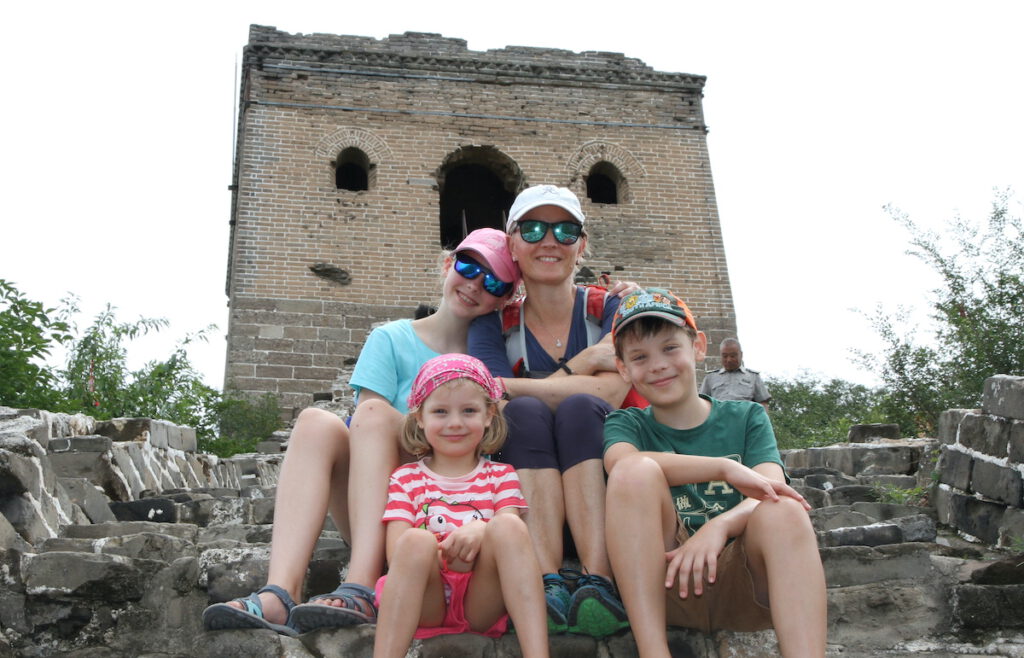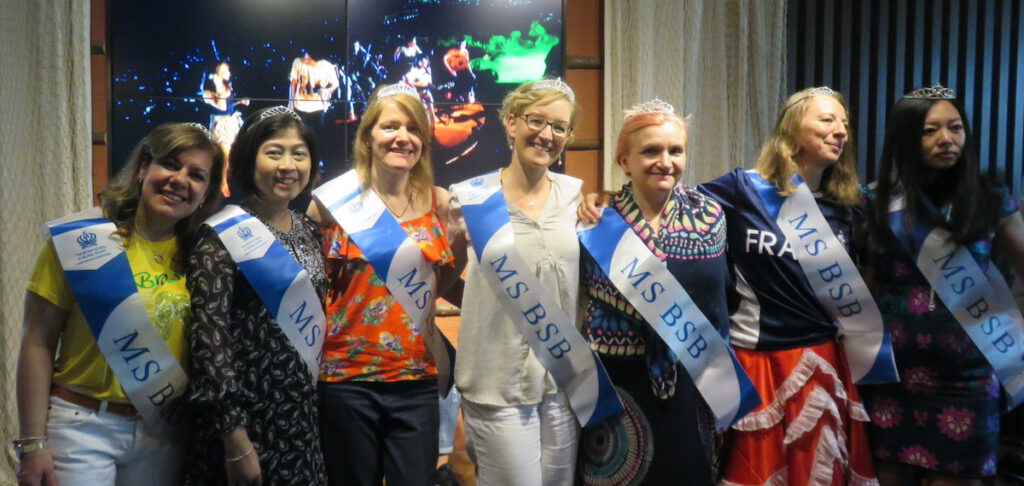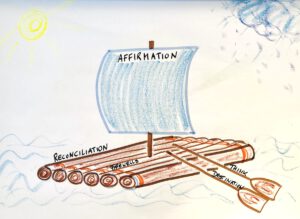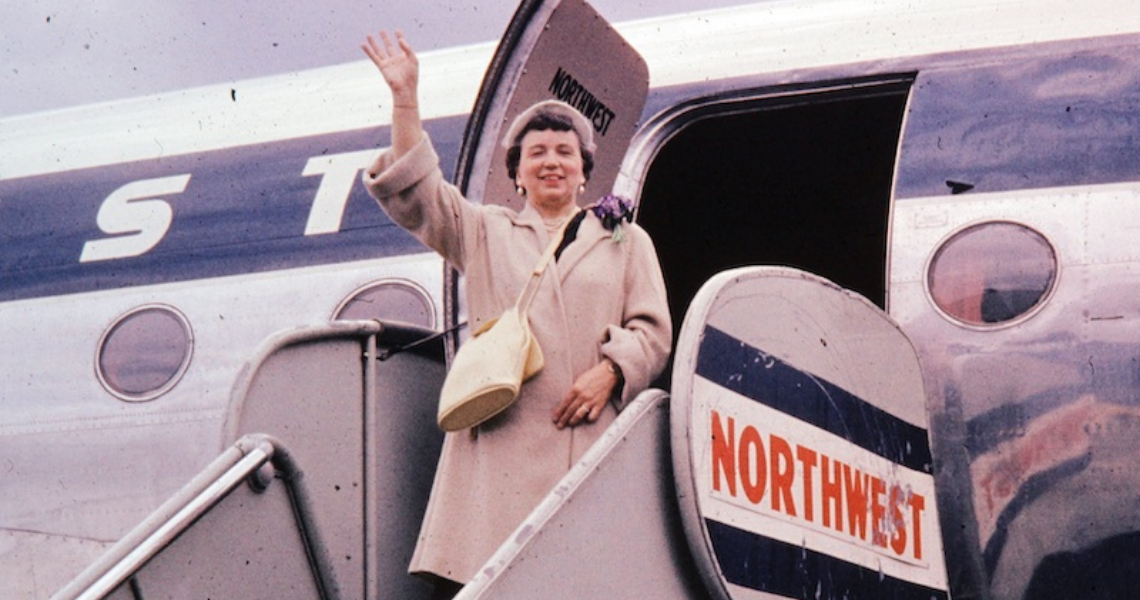“What did the expat say to her friend?”
“Goodbye.”
Ok, not funny. But goodbyes are the ONE thing that all global nomads have in common. And yet, most people dread them so we end up avoiding the issue and hoping it will go away.
I promise you straight talk so lets grab this bull by the horns and see how can we make saying farewell more bearable. What is a good goodbye? How can we prepare ourselves, our children and our friends? Why should we bother? What all should we bid farewell to? How should we say goodbye to our friends? What are we forgetting in all the madness? (Read my final answer here)
Why it's important to say goodbye
We know that goodbyes are good for us, even if we resist them. Why that is, is put nicely in a publication on Psychology Today:
“Saying goodbye allows us to put words to feelings, shape how we remember someone, codify our choices, and frame distinct periods of time. In short, goodbyes give us a sense of closure as we move into the next phases of our lives.”
They also allow us to celebrate relationships and memories made together.
Across seven different studies Schwörer, Krott, and Oettingen (2020) made the following observation “Across all studies, we observed that well-rounded endings were associated with positive affect, little regret, and an easy transition into the next life phase.”
The “well-rounded” ending isn’t just important for you and your family. It is also key for your friends (and family) and your kids’ friends for them to experience the closure of this chapter of your life and relationships together.
It's not just about the people though
When we move, we usually plan our goodbyes to the people we spent time with but there is more to it than that if we want to have real closure. To start with, we should also say farewell to places that hold special memories (monuments, playgrounds, restaurants, museums, schools, work place, shops,…), things we cannot take with us, and the favorite foods we enjoyed.
For us on our way out of China this meant one last trip to the Great Wall and relishing street food and dumplings during our last week (ok, let’s be honest – stuffing our faces is more like it).
But that still isn’t everything.

Hidden Losses
There is another layer to bid farewell to and it’s much less obvious because it isn’t tangible. Not acknowledging the complexity of our feelings will make the transition to a new place much, much harder and can cause months (years?) of heartache, as we slowly come to grips with all that we have lost. By recognizing and understanding these sources of grief, we can better help ourselves and our children through the transition.
Hidden losses may include:
- loss of our world as we know it
- loss of status
- loss of lifestyle
- loss of relationships
- loss of belonging
- loss of a past that was – we can never go back to the expat life as it was.

Are you a pre- or a post-griever?
I first came across the terms pre- and post-griever in Lauren Wells’ book Raising up a Generation of Healthy TCKs* and was kind of stunned it hadn’t occurred to me sooner. Of course there are differences. Some people are a hot mess of tears for weeks before a move and others are cool as a cucumber, never shedding a tear or showing much emotion, even as they board the plane.
But a few weeks into the move they find themselves on the floor of their bedroom, dissolved into a puddle, unable to stop the flood and unsure what caused the dam to burst. This is me. Usually the first person to cry during any movie, as we get close to a transition I run dry. I focus and get things done, making sure all the boxes are ticked and everything goes smoothly. It feels weird and I hardly recognise myself but I now understand that I’m a post-griever. I get through the move and take time to grieve after the work is done.
A pre-griever will process a lot of her emotions before the move and then be more focussed and intent for the next stage.
When do you grieve? When do your children grieve? It’s important to understand the differences and support each other – even if we process differently. Lauren has some good advice for helping your children. For adults, you might find this link and this one helpful.
Preparing for your farewell - build a RAFT

In the book Third Culture Kids* the authors introduce the acronym RAFT to help children and their parents transition from one place to another. This is a helpful model to use as you prepare to leave or if a friend is leaving. The letters stand for:
R: Reconciliation. Don’t leave with unresolved tension and discontent. Make things right because this is the foundation on which you build your goodbyes (your logs). If you are leaving unexpectedly, reconciliation with the situation is also important, so that you can move on without resentment and regret.
A: Affirmation. Let people know you respect and appreciate them. Be specific about how they enriched your life – you will make them feel good and you will feel great yourself, too. This is the sail that will speed your journey along.
F: Farewells. Saying goodbye is important to not have regrets later and to celebrate the adventures you had. More on this below. These are the ropes, holding the raft together.
T: Think Destination. Even in the middle of going we need to focus attention on the future, to prepare for what is coming next. Make a list of things to look forward to, places you want to visit and maybe people you’ll see. Involve the whole family. All of the good things ahead are your paddles that will help you steer to where you want to go without drifting aimlessly.
You can use this model as a guide to help you plan your transition. If you are restricted from saying goodbyes the way you’d like to due to an unexpectedly sudden departure or by social distancing measures, I encourage you to be creative and still find a way to build your RAFT without skipping any part. I shared some ideas here.
For further reference, here’s also a link to an FIGT blog post about the RAFT model.
Staying behind
Staying behind can be hard. Watching your friends pack up and go, getting wrapped up in preparations and parties, looking ahead to something new while all you are looking at is a big friend-shaped hole in your life can be staggeringly difficult.
The person that doesn’t move when others do will also grieve the loss, either pre- or post move, and may or may not want to get involved in helping see you off. This applies to adults and children so be aware – for yourself and your kids. Start by reading this post about healing after a friend leaves and then think about how you can support your children if they have friends leaving or how you will shape your life when part of your network has gone.
Favourite farewell events
We have said our goodbyes in many ways, shapes and forms. What we do and how we do it changes as our family dynamics change but here are some favorites:
- Big party. The downside is that you can’t spend much time with people individually but the advantage is you can have one final memorable bash.
- Individual lunches/dinners. Choose your closest friends and go out for a special meal.
- Trip or event together. Grab your besties or a befriended family and make a few more memories together.
- Separate parties for each child, according to their wishes and with their closest friends. This is more work and more planning but may mean your children will get the closure they need.
- Drop-in/open-house coffee morning.
- COVID conform: drive by everyone’s house and chat/wave from the car.
- Don’t do anything. Just leave. I’m JOKING. Don’t do this.
A few more tips
Transitions are usually pretty crazy times, with or without kids and with or without a pandemic. Here is a collection of my additional tips to help say good goodbyes:
- Plan, plan, plan. Schedule all events, parties & dinners well in advance and tell people. Calendars fill up quickly in moving season and you don’t want to be competing for guests with others that are departing.
- Involve all family members. Ask your partner & children how they want to say goodbye and who they want to include. The working partner may want to host a separate event for colleagues, the kids might want to take a batch of cookies to each club, etc.
- Decide who the close people are that you want to say individual goodbyes to and schedule those things right away.
- Take 10x more photos than you think you should.
- Read this for more things you can do to prepare for a move.
- Children especially sometimes need tangible things as memory makers – make sure they get photos/albums/t-shirts/mugs/pillows or something else they can hold on to as gifts from friends or you.
- Grab my freebie “Top 10 Tips for moving with kids” for general advice around moving with children.
- Recognize that staying behind can be harder than leaving. Give your friends some grace if they are not getting as excited as you are about leaving.
- While you’re at it, give your partner and kids some grace, too.
- Don’t forget you. Take care of your needs and be patient with yourself.
So, what is a good goodbye?
I think it’s one where everyone you leave behind knows what they meant to you, you’ve had a chance to celebrate the people & things that shaped your time in a place, you recognise your hidden losses and give yourself and your family time & space to grieve. You have things to look forward to in your new location.
In German we say “Auf Wiedersehen”, the Italians say “Arrivederci” and in Mandarin it’s “zài jiàn” – all of which mean “See you again.” A gentle and hopeful way to say a good goodbye, don’t you think?
*) affiliate link




